Episodes

Tuesday Jul 06, 2021
Shakespeare's Rome: "Coriolanus" and the Republic by Dr. Virginia Arbery
Tuesday Jul 06, 2021
Tuesday Jul 06, 2021
You common cry of curs! whose breath I hate
As reek o' the rotten fens, whose loves I prize
As the dead carcasses of unburied men
That do corrupt my air, I banish you;
And here remain with your uncertainty!
Let every feeble rumour shake your hearts!
The quote is from William Shakespeare’s tragedy “Coriolanus.” Coriolanus was a great war hero during the fifth century BC, the early years of the Roman Republic. After returning from a great victory, the Roman Senate would make him a consul—the highest office in the city. But the common people of Rome egged on by their leaders, the tribunes, believe him too proud and vote instead to banish him from the city. In anger Coriolanus cries, “I banish you,” leaves the city, and joins ranks with the enemy to revenge the insult by conquering Rome.
“Coriolanus” was the first of three plays we considered in June at the Wyoming School of Catholic Thought as we considered “’Shakespeare’s Rome.” Before we divided into seminar groups, Dr. Virginia Arbery delivered this introduction to the play, to the Roman Republic, and to questions concerning our own republic.

Tuesday Jun 29, 2021
Shakespeare's Rome: An Introduction by Dr. Glenn Arbery
Tuesday Jun 29, 2021
Tuesday Jun 29, 2021
From June 6-11, a group of forty adult students gathered in Lander for The Wyoming School of Catholic Thought. Our topic was “Shakespeare’s Rome” which we then related to Shakespeare’s England—he lived during Queen Elizabeth I’s reign—and to our America.
While we can’t bring you the interaction we all enjoyed during seminars, which accounted for most of our time together, this and the following four podcasts feature the introductory remarks of our faculty to the plays “Coriolanus,” “Julius Caesar,” and “Antony and Cleopatra” and the story of Aeneus and Dido from Virgil’s Aeneid.
Dr. Glenn Arbery, our college president, delivered this lecture to introduce the week’s topic.
If you’d like to “brush up your Shakespeare” as Cole Porter famously put it, read Shakespeare’s tragedy, “Coriolanus” in anticipation of next week’s podcast by Dr. Virginia Arbery.

Tuesday Jun 22, 2021
"As Kingfishers Catch Fire" with Dr. Pavlos Papadopoulos
Tuesday Jun 22, 2021
Tuesday Jun 22, 2021
As kingfishers catch fire, dragonflies draw flame;
As tumbled over rim in roundy wells
Stones ring;
Gerard Manley Hopkin’s sonnet, “As Kingfishers Catch Fire,” has become one of the poems Wyoming Catholic College graduates memorized over the course of four years. And it’s the one our seniors, as a class, recited during their weekend of graduation festivities. The recitation was led by Dr. Pavlos Papadopoulos who has a great personal love for this challenging poem.
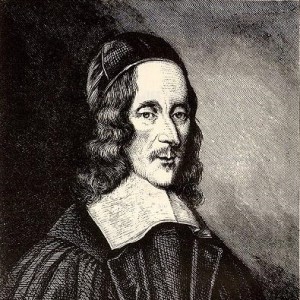
Tuesday Jun 15, 2021
George Herbert's "Love (III)" with Dr. Tiffany Schubert
Tuesday Jun 15, 2021
Tuesday Jun 15, 2021
“Love bade me welcome: yet my soul drew back,” begins George Herbert’s poem “Love (III).” It’s one of the 26 poems students at Wyoming Catholic College memorize over their four years and one of the most beloved.
George Herbert, an Anglican clergyman, lived a mere 39 years, from 1593 to 1633. Yet the great Puritan pastor and theologian, Richard Baxter said of him, “Herbert speaks to God like one that really believeth in God, and whose business in the world is most with God. Heart-work and heaven-work make up his books.”
Dr. Tiffany Schubert taught the poem this year and began this interview by telling us something about poet George Herbert.
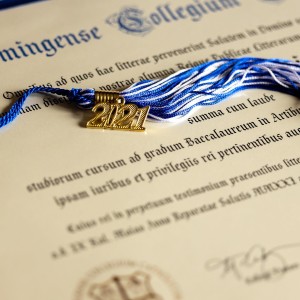
Tuesday Jun 08, 2021
President's Address to the Class of 2021 by Dr. Glenn Arbery
Tuesday Jun 08, 2021
Tuesday Jun 08, 2021
Each year on the evening before commencement, it falls on the president of Wyoming Catholic College to host the President’s Dinner and to address not only the graduates, but their parents, siblings, grandparents, and friends.
The Wyoming Catholic College class of 2021’s junior and senior years were, of course, marked by pandemic, panic, and social distance. Theirs was an unusual college career.
Yet, as college president, Dr. Glenn Arbery, noted in his address at the President’s Dinner, it was a class that nonetheless excelled in every way.
Here are Dr. Arbery’s remarks in their entirety.
Note: Please excuse the fidelity of the speech. It is not as good as we had hoped. Dr. Arbery's words, however, will more than make up for any inconvenience.

Tuesday Jun 01, 2021
Student Commencement Address by Mr. Anthony Jones
Tuesday Jun 01, 2021
Tuesday Jun 01, 2021
Each year our Wyoming Catholic College graduating class selects one of its members to speak on its behalf during the commencement exercises. This year, the Class of 2021 chose Mr. Anthony Jones as their spokesman.
In addition to graduating Magna Cum Laude—posting the second highest grade point average in his class—Anthony founded Cowboys for Life, the college’s pro-life group and organized the first pro-life march in Lander. He was active in Wyoming politics, serve as summer intern at Family Research Counsel and The Heritage Foundation in Washington, DC, and traveled to Ireland one summer to fight the legalization of abortion in Ireland.
After graduation and two weeks in the backcountry with classmates, Anthony will be moving to Austin, Texas to work at the Texas Policy Foundation before attending graduate school in public policy.
Here are Anthony’s remarks in their entirety.
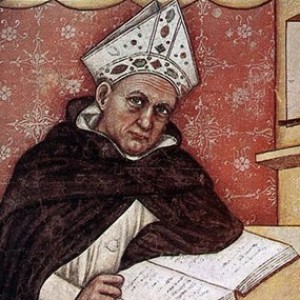
Tuesday May 25, 2021
Faith and Reason in Benedict XVI's The Regensburg Address with Dr. Michael Bolin
Tuesday May 25, 2021
Tuesday May 25, 2021
When he delivered his “Regensburg Address” in 2006, Pope Benedict XVI set off a firestorm of anger. Not only had he criticized Islam and modern scientism, he had the temerity to suggest that what the world really needs is Catholicism. Nearly fifteen years later, sound far less profligate and far more prophetic.
Of course, the Regensburg Address was not primarily about Islam or about scientism. Pope Benedict argued for the place of reason in human life. Without it, we either end up with subjective religiosity ungoverned by reason and leading toward fanaticism or we limit reason to mathematics and physics leading to a cold, calculated science that erases religion and morality and with them our humanity.
Dr. Michael Bolin read Pope Benedict’s Regensburg Address with our Wyoming Catholic College seniors in the weeks before graduation.
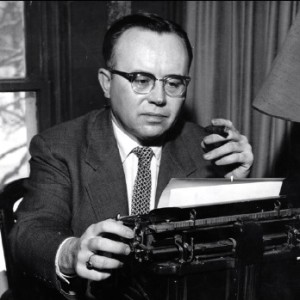
Tuesday May 18, 2021
Russell Kirk and the State of Conservatism with Dr. Susan Hanssen
Tuesday May 18, 2021
Tuesday May 18, 2021
“Men cannot improve a society by setting fire to it,” wrote conservative political theorist Russell Kirk, “they must seek out its old virtues, and bring them back into the light.”
The twentieth century, in contrast with what Kirk wrote, witnessed various attempts to improve society by setting them on fire. And the twenty-first century has the nasty feel of more of the same.
Our final guest lecturer here at Wyoming Catholic College was historian Dr. Susan Hanssen from the University of Dallas. The day before her lecture, she addressed the student St. Boethius Society about Russell Kirk and the history and current state of American conservatism.

Tuesday May 11, 2021
"30 Days with Married Saints" with Kent and Cait Lasnoski
Tuesday May 11, 2021
Tuesday May 11, 2021
As they begin their devotional guide for married couples, 30 Days with Married Saints, Wyoming Catholic College theologian Dr. Kent Lasnoski and his wife Cait ask the reader to imagine a beatification ceremony for a married couple. The words they quote are from St. John Paul II’s homily at the beatification of Luigi and Maria Beltrame Quattrocchi, but they add, “One day, God willing, such a homily might be given for you! You may think this possibility highly unrealistic and perhaps it’s true that you and your spouse will never be officially canonized. But that doesn’t mean that you cannot become saints.”
Their book 30 Days with Married Saints is a means to that end.
I began by asking Kent and Cait what inspired them to write the book.
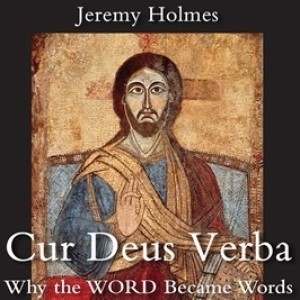
Tuesday May 04, 2021
Why the WORD Became Words with Dr. Jeremy Holmes
Tuesday May 04, 2021
Tuesday May 04, 2021
Quoting St. Jerome, the great fifth century Bible scholar, the Catechism of the Catholic Church (133) tells us:
The Church “forcefully and specifically exhorts all the Christian faithful. . . to learn the surpassing knowledge of Jesus Christ, by frequent reading of the divine Scriptures. Ignorance of the Scriptures is ignorance of Christ.”
Theologians throughout the life of the Church pointed out not just a connection, but a identification between Jesus Who is the Word of God made flesh and the Scriptures, the Word of God written and handed down to us.
But how does that work? What does it mean?
Theologian Dr. Jeremy Holmes hopes that his new book will answer that question. The title is Cur Deus Verba: Why the WORD Became Words.
To sign up for the free distance learning course "Reading Your Bible for All It's Worth," visit the Wyoming Catholic College website.

